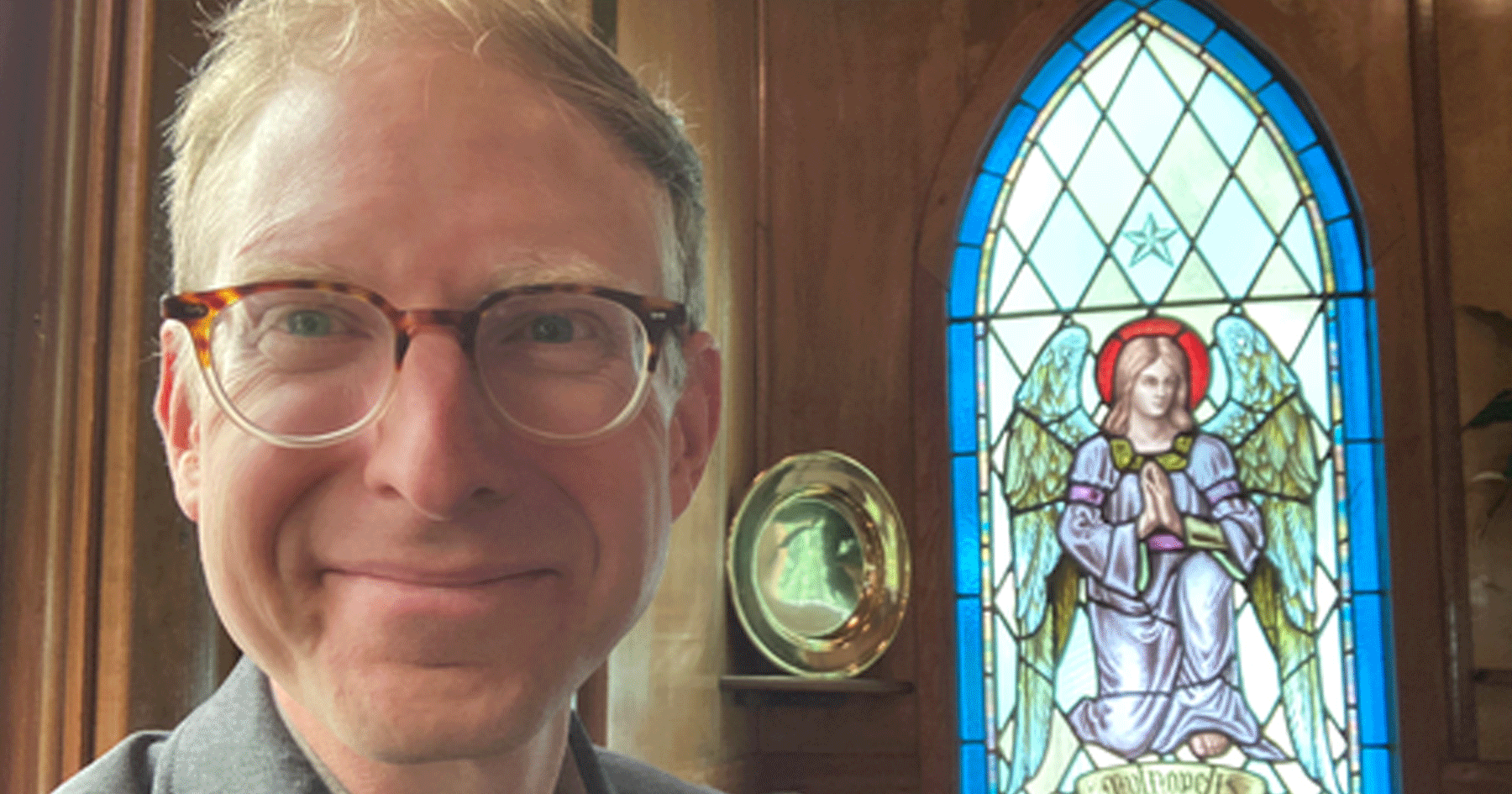I walked into a small Sunday schoolroom one afternoon, just before the evening service. Rather than shelves filled with ‘Godly Play’ figurines and parable boxes, there was a photographer’s backdrop, a stool, and a camera. Matthew, a newer member of the congregation, greeted me excitedly. And working with his dad, embarked on a project to tell stories of faith lost and found.
Matthew was curious about others’ stories of faith: what fuelled their faithful response to God when life worked as planned and even when it didn’t? What were the origins of their faith? What life experiences and encounters with God had led them to deepen, renew, and transform their life in God? What carried them through when God seemed absent? Where were they seeing God act in their lives?
Inspired by photoblogs like Humans of New York, https://www.humansofnewyork.com/ the project surfaced the often untold stories of the people we see at church every week.
Through photography and sensitive storytelling, Matthew wanted to share some unique aspects about each interviewee. What resulted was a project bearing witness to God’s abundant faithfulness in people of diverse experiences and backgrounds. This project and others like it helped transform and grow our fledgling community precisely because it helped us see one another with increased depth and appreciation.
Be Intentional and Curious
Because he was searching for something, Matthew brought deep intentionality and curiosity to the project. He wanted to know something about peoples’ lives, treating their stories with the utmost care. I noticed that many of the questions he asked were the same kinds of questions he was wrestling with in his own life. Maybe that’s why they resonated at a deeper level with those who responded. They weren’t questions asked for the sake of asking questions. Matthew asked questions for the sake of understanding and deepening relationships.
From start to finish, his genuine curiosity about each one’s experience of life and faith shone through. Approaching each person as someone whose story was valuable, and whose experiences could teach others about God’s loving action in the world, created an atmosphere where people could be brave and vulnerable.
Don’t Shy Away From Questions That Matter
So often we shy away from questions that matter. We ask “how are you,” and respond with the requisite “fine.” But how often do we approach our encounters with one another in ways that allow our connection, self-understanding, and experience of divine encounter to go deeper?
“How is it with your soul,” we might ask. Or perhaps we might engage our curiosity and ask “could you tell me about one of your spiritual ancestors and what they mean to you?” Or perhaps, “where are you experiencing God at work in your life these days?” In taking intentional time with each of the interviewees, Matthew asked us to reflect on our lives of faith. He asked us to put word and story to the sometimes mysterious, sometimes inexplicable experiences of God stepping into the present moment. Given the gift of an attentive listener, Matthew allowed us to share our experiences and start to process some of what they were coming to mean for us.
Our Stories are Valuable beyond Our Own Self-Understanding
The stories of our experiences with God are, in one sense, our own. These experiences often serve as signposts—reminders of God’s faithful action. Experiences like these can be especially important in times when God feels distant. They remind us of God’s promise never to leave or forsake us.
These stories of God’s actions in the world may be personal, but they are not meant to be kept private. Christian history is littered with the stories of God’s encounters with humanity and the transformation that results. This transformation may start with one person, but it never stops there. When we tell and retell the biblical stories, we rehearse the reality that God shows up to lead people into shalom; so too we tell the stories of God’s faithfulness experienced by people today. As Christian communities, it is our job to discern, interpret, and bear witness to the unfolding story of God’s faithfulness in the world.
As Anglicans, this is one of our growing edges. More than anything else, it is a place where we need to focus our attention. Buildings and programs and numbers may be interesting data points, but on their own, they do not bear witness to God’s work in the world. That’s our job. It’s up to us. Another way to put it: we cannot complain that “nobody comes to church anymore” if we cannot bear witness to Jesus’ ongoing work in the world with a living, breathing faith.
Sharing personal stories of faith can be daunting. And yet, given a caring attentive context, can be life giving for us, for others, and for the life of the church. What if we took this seriously? What if we took Matthew’s idea and adapted it to our own context?
I wonder how such deep listening and vulnerable sharing would change us, and how God might use these encounters to help us better respond to the world and one another in love.




